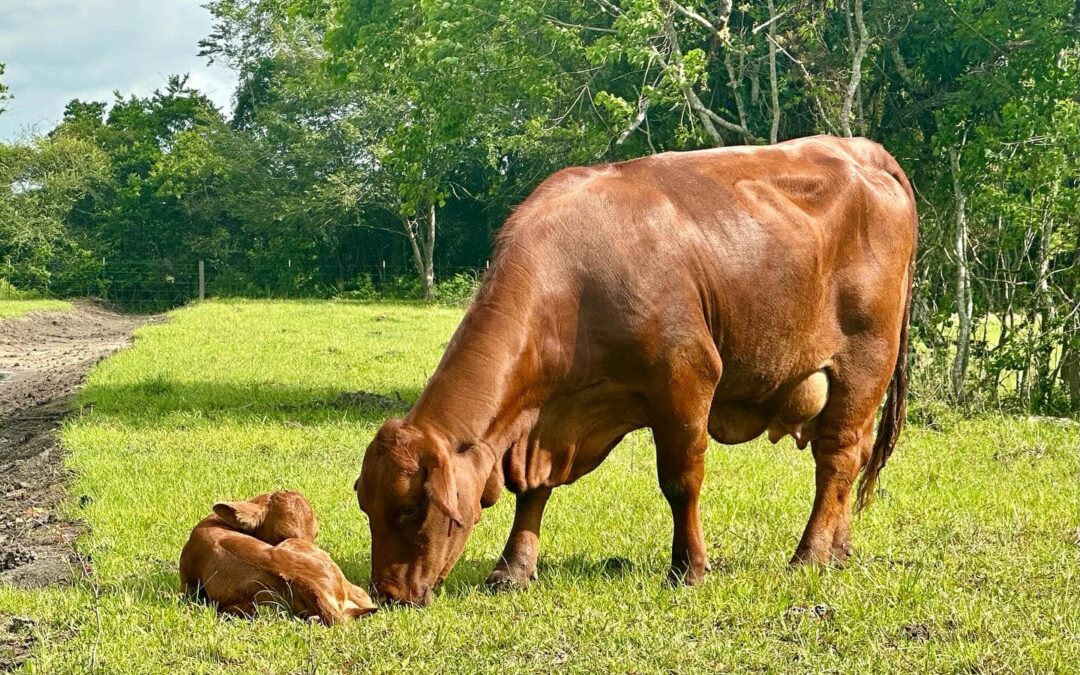Raising healthy Beefmaster calves is a critical component of any successful cattle operation. The wellbeing of your calves directly impacts herd productivity and profitability. This article will delve into expert-approved tips to ensure the health and vitality of Beefmaster calves.
Prioritize Quality Colostrum Intake
Colostrum, the first milk produced by the cow after giving birth, is rich in antibodies that provide passive immunity to newborn calves. Ensuring adequate colostrum intake within the first few hours of birth is vital for a calf’s early immunity and overall health.
Nutrition for Growing Calves
After the colostrum period, your calves’ nutrition should focus on growth and development. Milk from the mother and quality pasture or forage should form the basis of a calf’s diet. As they mature, they can gradually transition to a diet including more roughage and possibly supplemented feeds.
Regular Health Check-ups
Regular veterinary check-ups can help monitor calf health and catch any potential issues early. Routine examinations can include checking for physical abnormalities, assessing growth rates, and monitoring for signs of illness or parasites.
Vaccination and Deworming
Implementing a systematic vaccination and deworming program is essential in maintaining calf health. Consult with your veterinarian to establish a protocol suitable for your location and herd health status.
Safe and Comfortable Environment
Creating a safe and comfortable environment for calves is crucial. They should have access to shelter from extreme weather conditions, and pastures should be safe and free from hazards. Overcrowding should be avoided as it can lead to stress and increase the risk of disease transmission.
Stress Management
Minimizing stress plays a key role in raising healthy calves. Procedures such as weaning and dehorning should be done in a way that reduces stress as much as possible. Low-stress handling techniques can also improve calf wellbeing and productivity.
Maintain Good Record Keeping
Maintaining comprehensive records of each calf’s health history, growth rates, vaccinations, and treatments is valuable for managing herd health and productivity. These records can help identify trends or issues and guide decision-making.
Monitor Weight and Growth
Regularly monitoring weight and growth rates can provide valuable insight into the overall health and development of your calves. Any deviations from expected growth patterns can be an early indicator of health issues and should be addressed promptly.
Early Disease Detection
Being vigilant about early disease detection can make a significant difference in the outcome for your calves. Familiarize yourself with the signs of common cattle diseases and take immediate action if a calf appears unwell.
Ensuring Genetic Health
Healthy calves start with healthy genetics. Choosing sires and dams with robust genetics can result in calves with better health and productivity. Genetic testing and selection can be powerful tools in this regard.
Conclusion
Raising healthy Beefmaster calves is a multifaceted process that requires careful attention to nutrition, health management, environment, and genetics. By implementing these expert tips, you’re laying a strong foundation for your calves’ health and your herd’s overall success. Remember, healthy calves grow into healthy, productive adults, making your investment in their wellbeing a rewarding one.
